A 56-year-old woman presented to the ED with sudden onset of atraumatic right foot pain.
The extremity was immediately noted to be pale and cool.
Vascular surgery was consulted based on the history and exam.
The vascular surgeon and fellow examined the patient.
CTA was done which showed thrombus of the distal aorta and right iliac system.
The patient reported recent episodes of diarrhea, and some of them had streaks of blood.
At certain points the patient was noted to have no Dopplerable DP/PT pulses, but at other times weak monophasic pulses were documented.
In light of her possible GI bleed and the presence of (albeit weak) pulses, the vascular surgeon recommended deferring surgery to optimize management.
She was started on heparin and admitted.
Become a better doctor.
Learn from common pitfalls so you can avoid similar issues.
Over the next few days she continued to have waxing and waning of symptoms.
On the 4th day of hospitalization, it was deemed appropriate to proceed with surgery.
She remained in the hospital for the next week.
Her exam worsened again, and a repeat CTA showed extensive re-occlusion.
Her leg was not felt to be salveagable, and she had a right BKA.
Over the next 10 days, she developed a worsening leukocytosis and fever.
Another CT demonstrated gas in the soft tissues of the right leg.
She was diagnosed with necrotizing fasciitis and myositis.
She underwent an above-knee amputation and extensive debridement.
Sadly, the patient succumbed to septic shock and multi-organ failure.
The patient’s sisters contacted a law firm.
A lawsuit was filed against two vascular surgeon attendings and the hospital.
The plaintiff hired a vascular surgeon who wrote the following opinion:
The plaintiff removed both of the vascular surgeons from the case, presumably because the settled.
The hospital is the only remaining defendant.
The plaintiff has offered to settle for $14,500,000.
The lawsuit is ongoing.
Subscribe to be notified when new developments occur.
Additionally, paying subscribers get a new case every week and access to the entire archive.
MedMalReviewer Analysis:
The expert witness indicates that surgery was delayed solely because of concern for GI bleed. However, they decided to start heparin anyway. I don’t see the logic in delaying surgery due to a GI bleed but still giving heparin.
I’m not surprised that the diagnosis of necrotizing soft tissue infection was delayed. There is significant overlap in the symptoms of acute limb ischemia and necrotizing infection. Both involve skin discoloration and severe pain, which can make it difficult to differentiate between the two entities. Ischemic tissue increases susceptibility to infection, so we should remain cognizant of the possibility of developing necrotizing fasciitis in this setting.
I found it interesting that the expert witness claimed that numerous healthcare providers fell below the standard of care, but the lawsuit only named 2 vascular surgeon. These additional healthcare workers were likely mentioned to justify suing the hospital (which employs them and has the deepest pockets), without having to go name each person as a defendant.
Note for CME subscribers: Email with instructions to claim credit for all February 2025 cases will go out on February 28.
If you’d like to get CME credit for reading these cases, sign up for a CME plan.




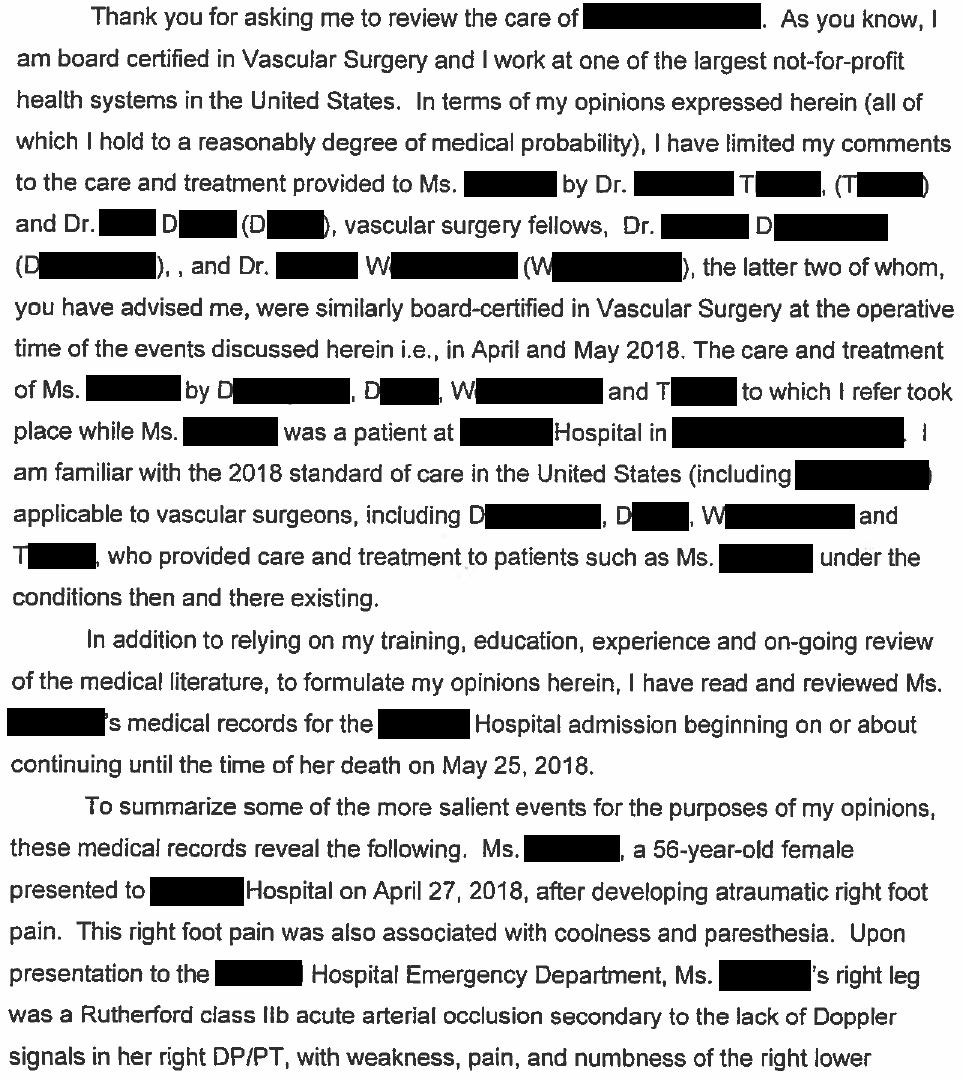
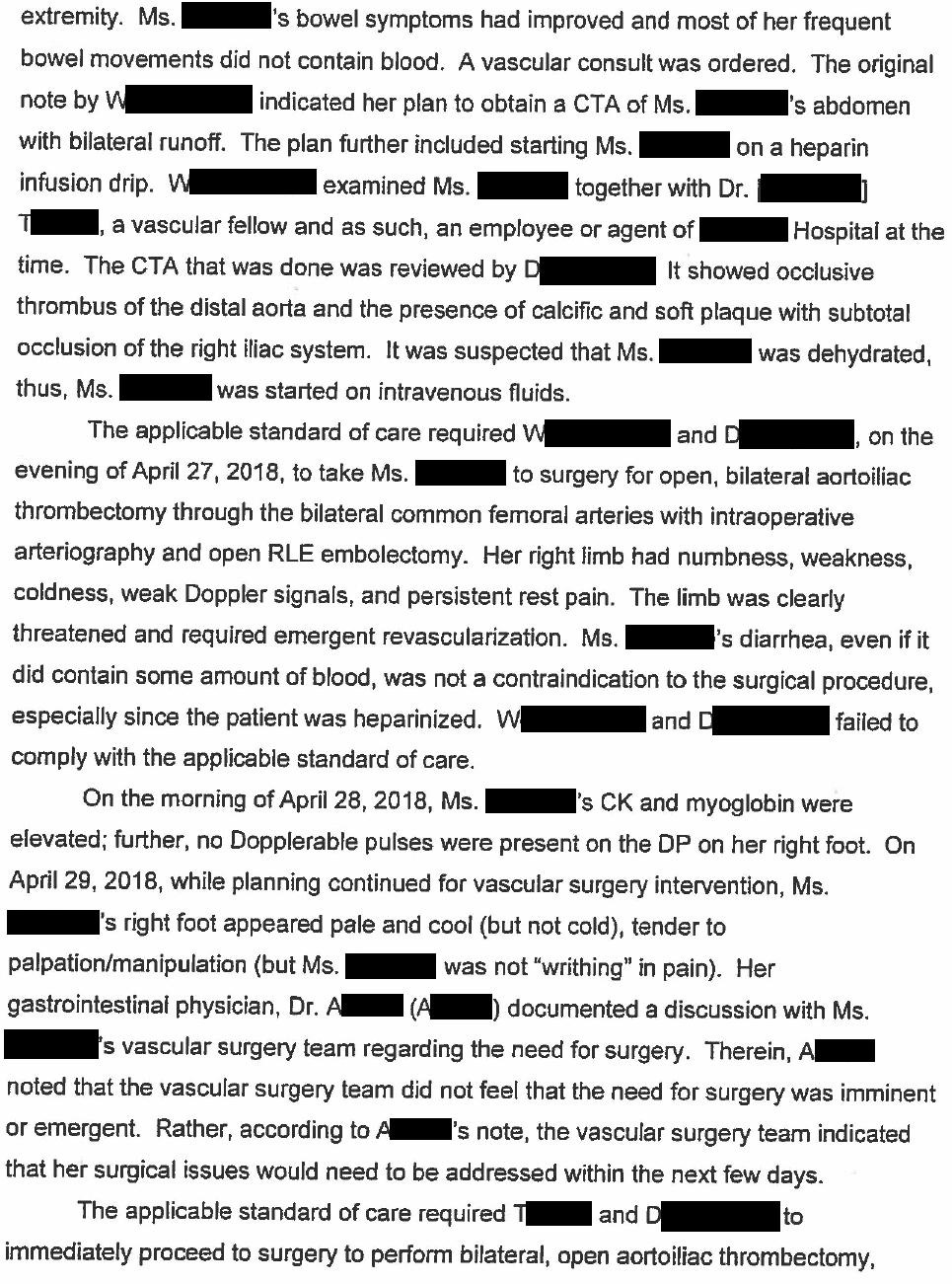
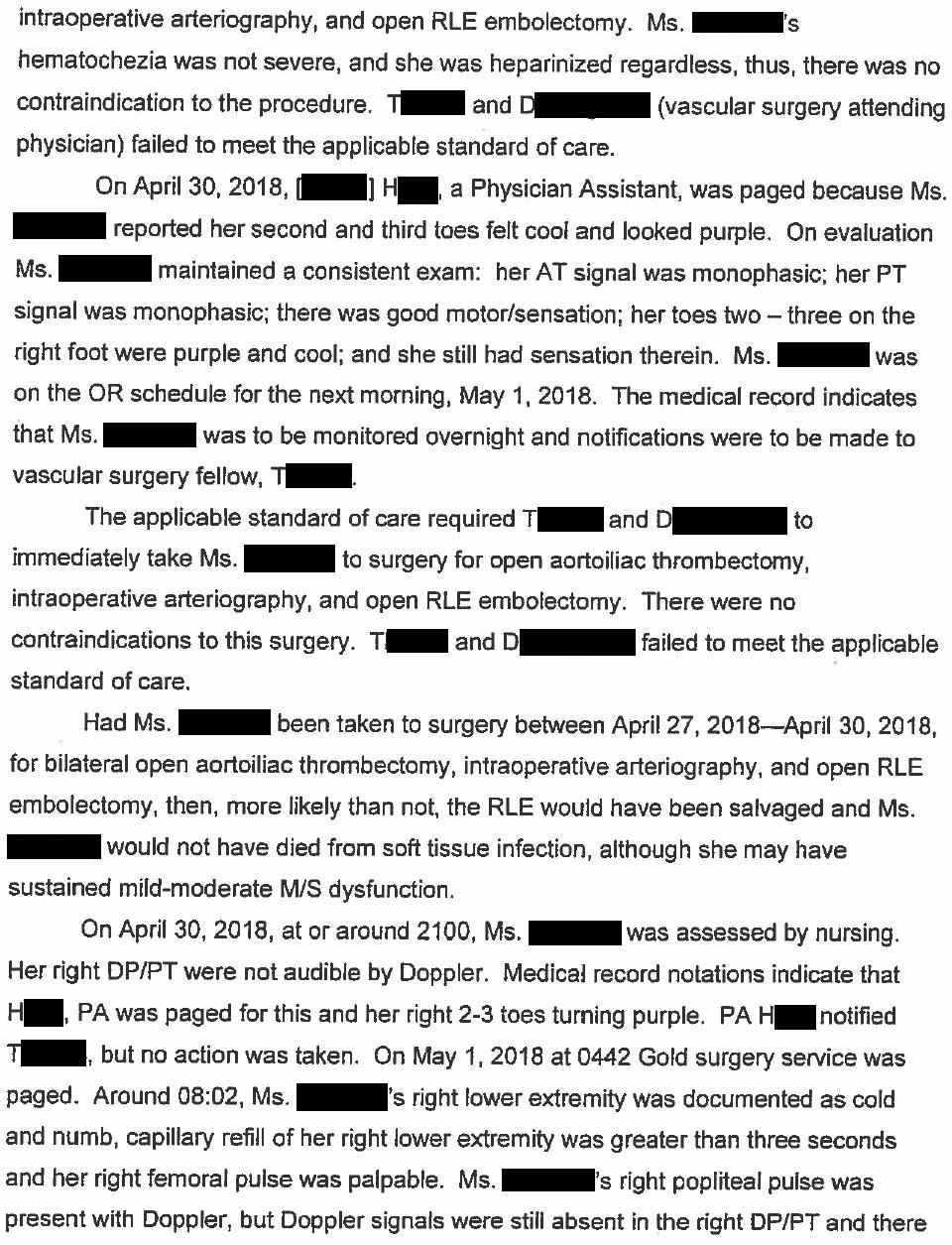
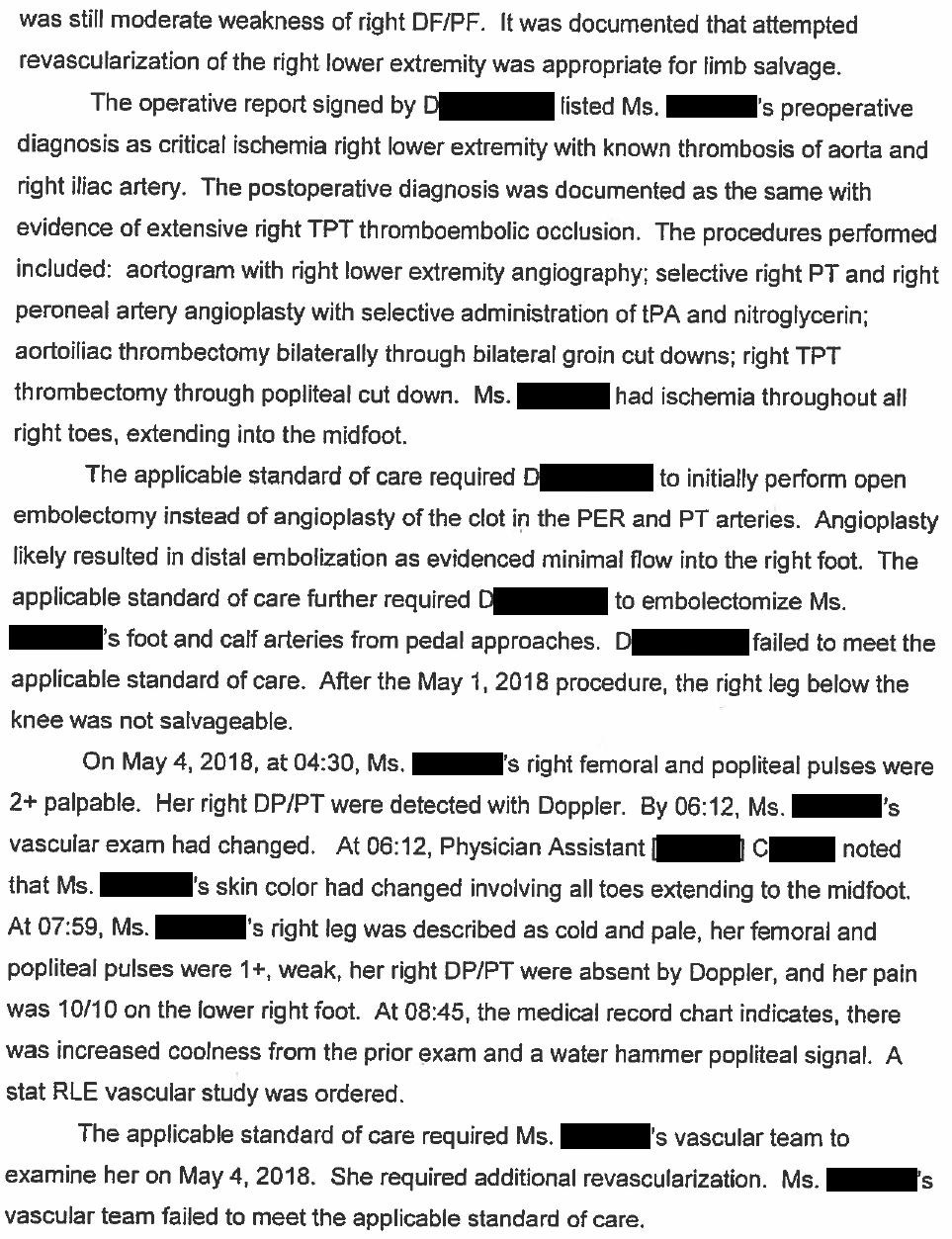
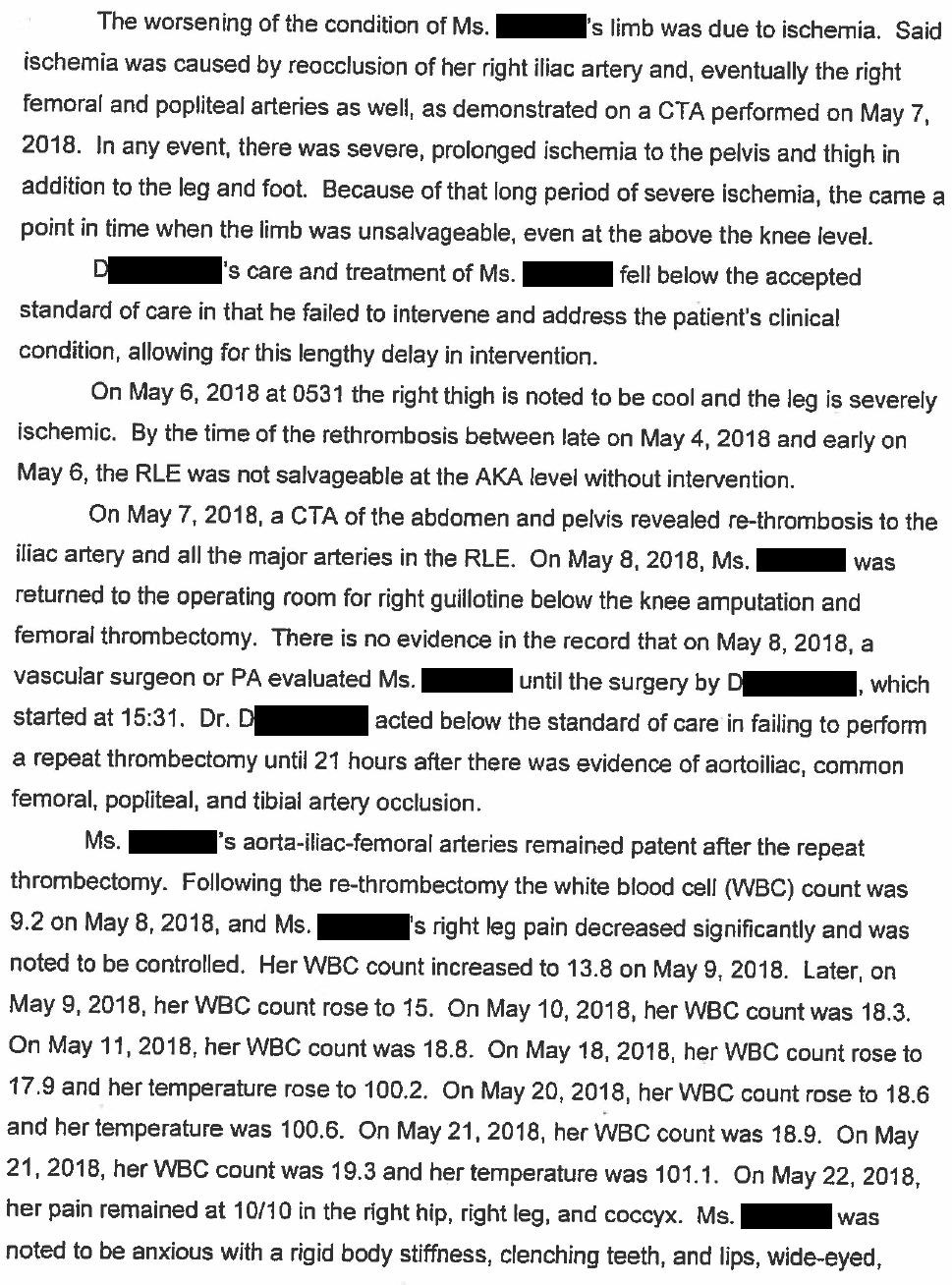
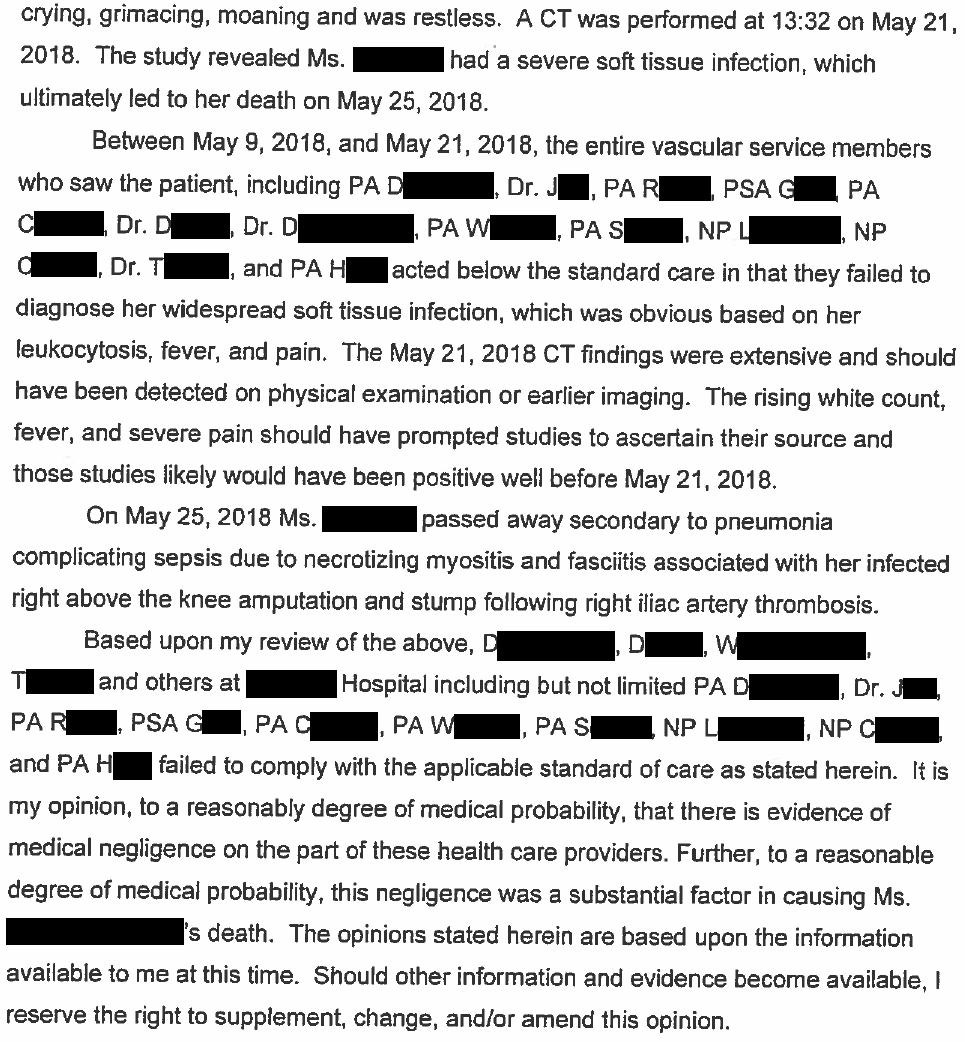
Clearly, the patient presented with a limb threatening condition from which all the downstream complications flowed. I’m an ER doc not a vascular surgeon, but in looking through the retrospectoscope, it seems at the outset an opportunity was lost to provide definite treatment and salvage her limb. A GI bleed poses risks (and in this case there is a paucity of data regarding its source and severity), but it does not seem to rise to the level of a life threatening condition to preclude immediate intervention directed at her ischemic leg; and in any case short of a catastrophic bleed could be temporized with transfusion, PPI or endoscopy. Time is muscle.
This situation highlights the consequences of a culture of delay that is, unfortunately, prevalent. In a case where a patient is facing limb loss, hematochezia becomes a relatively minor concern. Was GI ever consulted? We frequently receive consults for similar cases, and in such scenarios, I advise the team to prioritize the more critical issues. If an experienced GI physician evaluates the case and recognizes key connections, it may be difficult to argue against their assessment or win the case.